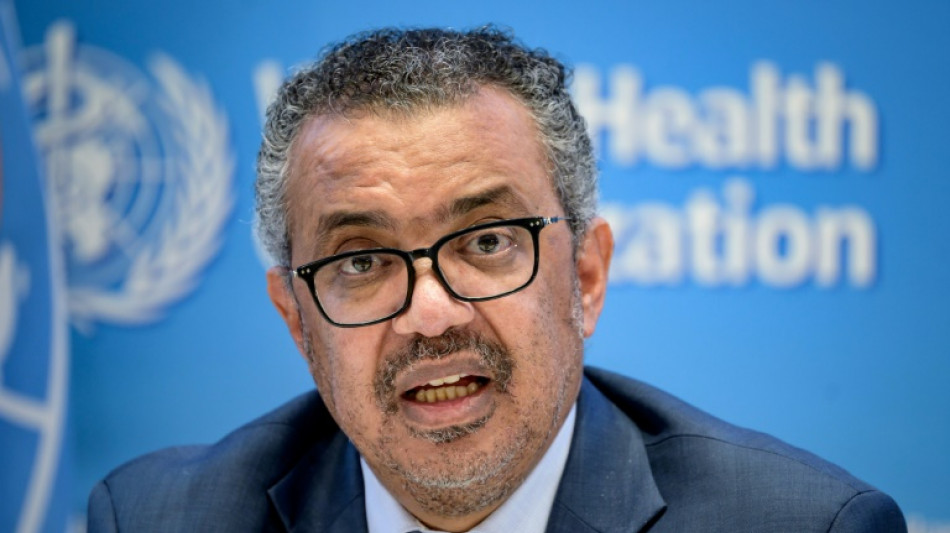
-
 Czech qualifier Bejlek claims first title in Abu Dhabi
Czech qualifier Bejlek claims first title in Abu Dhabi
-
French duo reach Shanghai, completing year-and-a-half walk

-
 Australian snowboarder James eyes elusive Olympic gold
Australian snowboarder James eyes elusive Olympic gold
-
Sequins and snow: Eva Adamczykova makes Olympic return

-
 Vonn set for Olympic medal bid after successful downhill training
Vonn set for Olympic medal bid after successful downhill training
-
Shepherd takes hat-trick as West Indies beat Scotland in T20 World Cup

-
 Sausages will sell after thrill-seeker Von Allmen wins Olympic downhill
Sausages will sell after thrill-seeker Von Allmen wins Olympic downhill
-
Swiss racer Von Allmen wins first gold of Winter Olympics

-
 'Wake up': Mum sparks comeback after scare for freeski star Gu
'Wake up': Mum sparks comeback after scare for freeski star Gu
-
Von Allmen wins men's Olympic downhill gold, first of Games

-
 First medals up for grabs at Winter Olympics
First medals up for grabs at Winter Olympics
-
Afghanistan captain Khan harbours dream of playing in Kabul

-
 Lindsey Vonn completes second Winter Olympics downhill training run
Lindsey Vonn completes second Winter Olympics downhill training run
-
Freeski star Gu survives major scare in Olympic slopestyle

-
 Iran FM looks to more nuclear talks, but warns US
Iran FM looks to more nuclear talks, but warns US
-
Hetmyer's six-hitting steers West Indies to 182-5 against Scotland

-
 After boos for Vance, IOC says it hopes for 'fair play'
After boos for Vance, IOC says it hopes for 'fair play'
-
Thousands gather as Pakistan buries victims of mosque suicide attack

-
 Lindsey Vonn completes second downhill training session
Lindsey Vonn completes second downhill training session
-
US pressing Ukraine and Russia to end war by June, Zelensky says

-
 Faheem blitz sees Pakistan avoid Netherlands shock at T20 World Cup
Faheem blitz sees Pakistan avoid Netherlands shock at T20 World Cup
-
Takaichi talks tough on immigration on eve of vote

-
 England's Salt passed fit for T20 World Cup opener
England's Salt passed fit for T20 World Cup opener
-
Spain, Portugal brace for fresh storm after flood deaths

-
 Pakistan bowl out Netherlands for 147 in T20 World Cup opener
Pakistan bowl out Netherlands for 147 in T20 World Cup opener
-
Pushed to margins, women vanish from Bangladesh's political arena

-
 Crypto firm accidentally sends $40 bn in bitcoin to users
Crypto firm accidentally sends $40 bn in bitcoin to users
-
Pistons end Knicks' NBA winning streak, Celtics edge Heat

-
 Funerals for victims of suicide blast at Islamabad mosque that killed at least 31
Funerals for victims of suicide blast at Islamabad mosque that killed at least 31
-
A tale of two villages: Cambodians lament Thailand's border gains

-
 Police identify suspect in disappearance of Australian boy
Police identify suspect in disappearance of Australian boy
-
Cuba adopts urgent measures to address energy crisis: minister

-
 Not-so-American football: the Super Bowl's overseas stars
Not-so-American football: the Super Bowl's overseas stars
-
Trump says US talks with Iran 'very good,' more negotiations expected

-
 Trump administration re-approves twice-banned pesticide
Trump administration re-approves twice-banned pesticide
-
Hisatsune leads Matsuyama at Phoenix Open as Scheffler makes cut

-
 Beyond the QBs: 5 Super Bowl players to watch
Beyond the QBs: 5 Super Bowl players to watch
-
Grass v artificial turf: Super Bowl players speak out

-
 Police warn Sydney protesters ahead of Israeli president's visit
Police warn Sydney protesters ahead of Israeli president's visit
-
Simi Khanna Launches Simi Beauty SK: A Natural Skincare Line Blending Luxury, Wellness, and Purpose

-
 Best Gold IRA Companies February 2026 Announced (Top Gold-backed IRA Companies Revealed)
Best Gold IRA Companies February 2026 Announced (Top Gold-backed IRA Companies Revealed)
-
Bolivia wants closer US ties, without alienating China: minister

-
 Ex-MLB outfielder Puig guilty in federal sports betting case
Ex-MLB outfielder Puig guilty in federal sports betting case
-
Milan-Cortina Winter Olympics open with dazzling ceremony

-
 China overturns death sentence for Canadian in drug case
China overturns death sentence for Canadian in drug case
-
Trump reinstates commercial fishing in protected Atlantic waters

-
 Man Utd can't rush manager choice: Carrick
Man Utd can't rush manager choice: Carrick
-
Leeds boost survival bid with win over relegation rivals Forest

-
 Stars, Clydesdales and an AI beef jostle for Super Bowl ad glory
Stars, Clydesdales and an AI beef jostle for Super Bowl ad glory
-
Dow surges above 50,000 for first time as US stocks regain mojo


Covid pandemic 'nowhere near over': WHO
The Covid-19 pandemic is far from over, the World Health Organization chief said Tuesday, cautioning against a narrative that the fast-spreading Omicron variant is risk-free.
"This pandemic is nowhere near over," Tedros Adhanom Ghebreyesus told reporters from the WHO's headquarters in Geneva.
The UN health agency chief warned against dismissing as mild the coronavirus variant Omicron, which has spread like wildfire around the globe since it was first detected in southern Africa in November.
The Omicron variant of Covid-19 is much more contagious than previous strains but seems to cause less serious disease.
That has triggered a debate on whether the virus is on the verge of passing from the pandemic phase to becoming an endemic disease that humanity can live with -- with the implication that the danger will have passed.
But the WHO has warned that the sheer numbers of people infected will mean many people are still falling seriously ill and dying.
- Misleading narrative -
"An exponential rise in cases, regardless of the severity of the individual variants, leads to inevitable increase in hospitalisations and deaths," WHO emergencies director Michael Ryan told Tuesday's press conference.
Tedros agreed.
"Omicron may be less severe, on average, but the narrative that it is a mild disease is misleading," he said.
"Make no mistake: Omicron is causing hospitalisations and deaths, and even the less severe cases are inundating health facilities."
He said there were indications that the Omicron-fuelled surge of Covid cases may have peaked in some countries.
This, he said, "gives hope that the worst of this latest wave is done with, but no country is out of the woods yet."
Tedros said there was an urgent need to remove the pressure building on health systems, especially in countries that still have low vaccination coverage.
"Now is not the time to give up and wave the white flag," he said.
"We can still significantly reduce the impact of the current wave by sharing and using health tools effectively, and implementing public health and social measures that we know work."
- 45,000 weekly Covid deaths -
Maria Van Kerkhove, the WHO's technical lead on Covid, agreed, pointing out that some 45,000 deaths from the disease were still being registered worldwide every week.
"That shouldn't be happening, because we have tools at hand," she told reporters.
Data indicate that existing Covid vaccines are less effective in protecting against Omicron transmission than against previous strains.
Some pharmaceutical companies are in the process of making vaccines that better target the variant, but WHO said that was not necessarily the way out of the crisis.
While the idea of variant-specific vaccines might be enticing, WHO chief scientist Soumya Swaminathan cautioned that since they take months to develop, "the danger is that you will be always trying to play catch-up with the next variant."
A better approach, therefore, she said, might be to try to develop so-called "multivalent vaccines or, ideally, to have a pan-coronavirus vaccine."
In the meantime, WHO stressed that the existing vaccines still do a good job of protecting against developing severe Covid disease, reiterating the importance of ensuring broader, more equitable access to the jabs.
"Vaccines may be less effective at preventing infection and transmission of Omicron than they were for previous variants, but they still are exceptionally good at preventing serious disease and death," Tedros said.
Health experts warn that allowing Covid to spread unabated in some places dramatically increases the chance of new, more dangerous variants emerging.
"With the incredible growth of Omicron globally, new variants are likely to emerge," Tedros cautioned.
F.Schneider--AMWN


